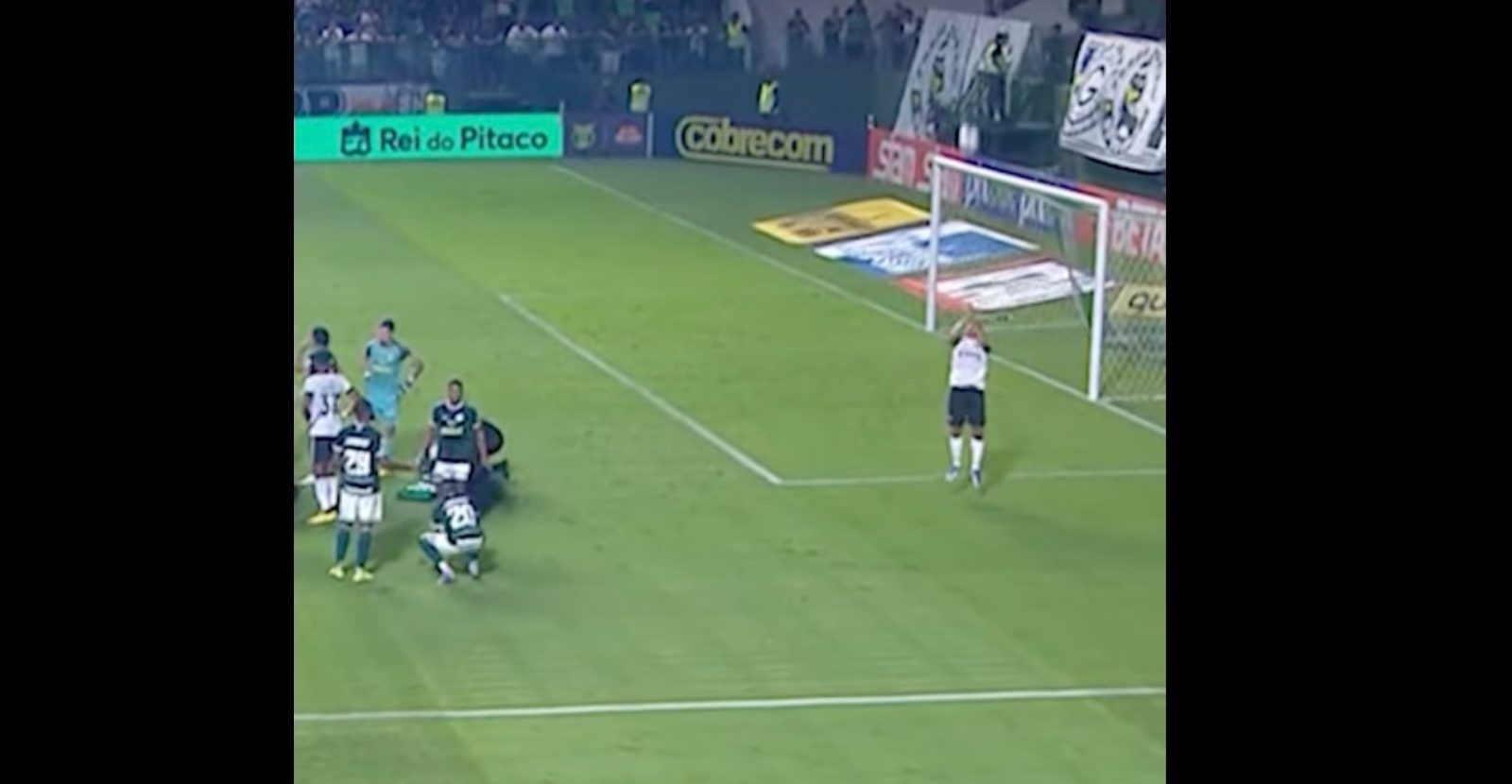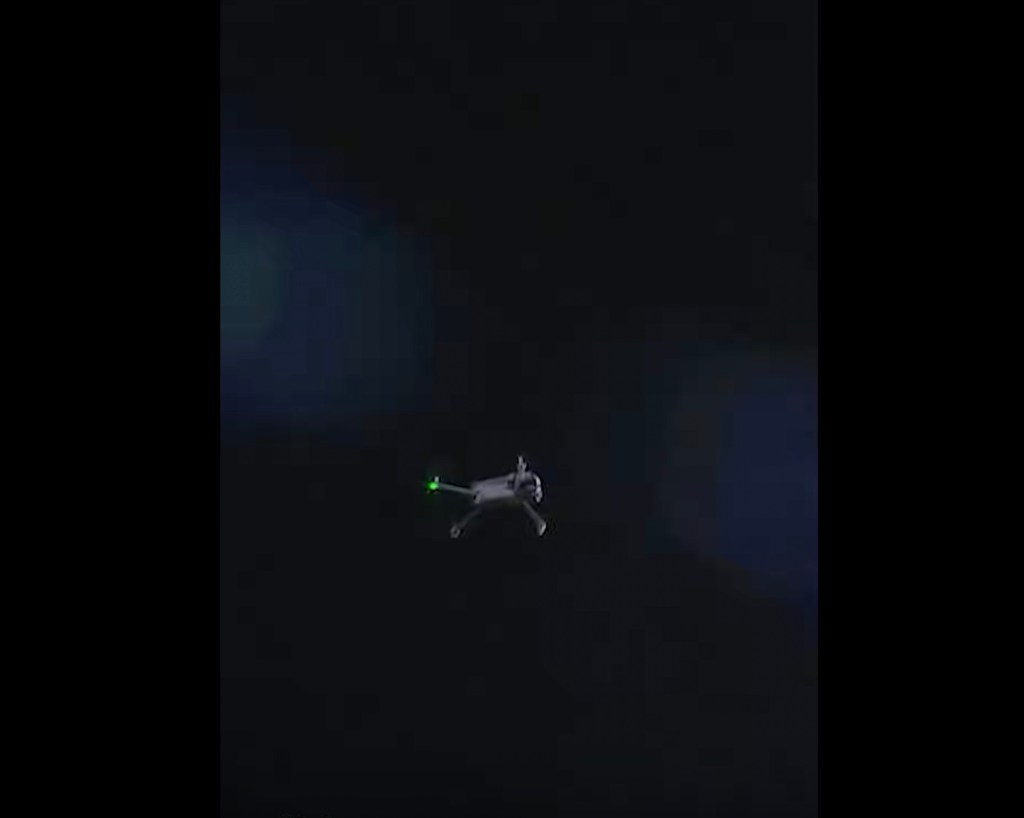
Most people are aware that shooting guns at unwanted drones flying overhead can result in criminal charges, but who knew trying to take one out with a soccer ball was a yellow card offense? Brazilian pro player Marcal does – now – and will be sitting out his Botafogo club’s next match for his attempt.
The futebol adaptation of baseball’s infamous “bean-ball” occurred in the second half of Botafogo’s 1-0 win over Brazilian Serie A rival, Goias. During a break in play while a downed teammate received treatment from trainers near the penalty area, Marcal grabbed a soccer ball, positioned himself beneath the drone hovering overhead, and hurled it surprisingly high in an effort to bring the craft down.
Subsequent video footage indicates Marcal’s attempt failed, with images showing what looks to be a smaller model DJI drone still fixed in the sky above the soccer pitch, its green positioning lights tranquilly blinking.

Though the pilot was almost certainly in flagrant violation of regulations enforced in most countries banning UAV flights above or around game day stadiums, it was Marcal who wound up being punished for his response to the aerial nuisance.
Though the rules of soccer do not stipulate attempts to knock drones out of the air as an infraction, the match referee of the evening decided he didn’t like the stunt all the same, and showed Marcal a yellow card. It being his third of the season means the former Wolverhampton player will have to sit out Botafogo’s next match.
While prohibited from use during soccer matches in most nations, drones have made recurring appearances at matches around the globe – most frequently in South America.
Video is available on social media capturing incidents of players or fans going after craft deployed to troll rival teams, in some cases successfully destroying them when UAVs were trailing easily catchable banners, or getting caught in goal nettings or field turf.
Read: English pro soccer match delayed by illegal drone flight
While drones have also defied flight bans during soccer matches in Europe and the UK, the trouble has usually been limited to the delays created by referees immediately halting play until the invasive vehicles have departed. Up to this point, that sort of intervention has occurred too quickly for any retaliatory attempts against the craft by players – though they are never short of ideas for provoking yellow cards with other offenses.
FTC: We use income earning auto affiliate links. More.


Comments